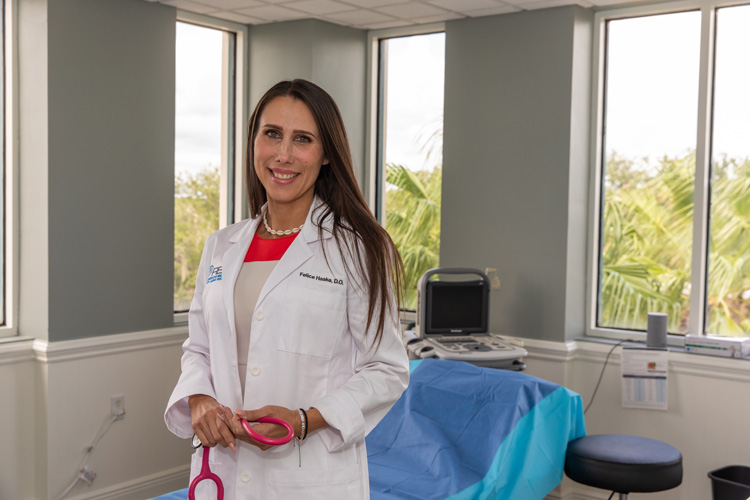
Quick quiz: What weighs between 25 and 30 grams – roughly one ounce – lives in your throat and has a lot to say about how tall or short you are, what your heart rate is, how much weight you might lose or gain and much, much more?
If you said the thyroid gland you are correct.
It’s a busy and important little gland, which makes it a matter of concern in that “an estimated 20 million Americans have some form of thyroid disease and up to 60 percent of those with thyroid disease are unaware of their condition,” according to the American Thyroid Association.
It may sound odd, but thyroid disease is sexist as well as widespread. The ATA says “women are five to eight times more likely than men to have thyroid problems.”
Dr. Felice Haake (pronounced “hockey”) volunteered to step in and shed some light on thyroid problems, though she quickly offers a disclaimer.
While Haake is board certified in both family practice and bariatric weight-loss medicine, she starts the conversation by saying, “I am not an endocrinologist, so I am by no means a thyroid specialist, but I do see a lot of it.”
That’s probably because two thyroid conditions – hyperthyroidism and hypothyroidism – can have a major impact on how much weight you lose or gain.
As the Mayo Clinic explains, “hyperthyroidism – or an overactive thyroid – occurs when your thyroid gland produces too much of the hormone thyroxine. Hyperthyroidism can accelerate your body’s metabolism, causing unintentional weight loss as well as a rapid or irregular heartbeat,” along with swelling of the thyroid gland, which can cause a noticeable lump known as a goiter to form in the throat.
Meanwhile, an under-active thyroid gland, known as “hypothyroidism,” occurs when the thyroid gland doesn’t produce enough hormones, causing symptoms such as tiredness, weight gain and feeling depressed.
As Haake confides, “I have a lot of patients who come in and say, ‘I’ve gained weight. I think it’s my thyroid.’”
The truth, as Haake tactfully explains, is that while “the thyroid gets a lot of blame in weight gain,” weight gain actually is more multifaceted in most cases.
“There are a lot of contributing factors in weight gain and it’s usually not just thyroid,” Haake says.
Married to Cleveland Clinic Indian River Hospital anesthesiologist Dr. Brett Haake, and the mother of three children, Haake adds, “there is a constant cascade of hormones in the human body; I always say this is the symphony and the thyroid is very much the conductor of this symphony.
“I think thyroid problems are probably a little more prevalent here in Vero Beach [than in a typical location] because they’re more common as you age,” and Vero has an older population.
If Haake sees a patient with a thyroid problem, she is likely to refer that patient to a local endocrinologist – a physician who specializes in glands like the thyroid and adrenal glands and the hormones they make.
One thing somewhat unique about Haake’s practice is that she doesn’t take insurance. Or Medicare.
According to Forbes Magazine, “currently insurers pay hospitals, clinics and doctors only enough to justify 15-minute appointments,” so Haake opted to go in a different direction.
“I left the insurance world,” Haake explains, “because I felt they were dictating [how much time I can spend] with patients. I want to spend a good hour with a patient, which is what I do.”
“Some of my patients – actually quite a few of them – will submit their own claims directly to their insurance company. So, we give them the ICD 10 codes,” which are needed to file claims.
If “ICD 10 codes” are Greek to you, they are the alphanumeric codes used by doctors, health insurance companies and public health agencies across the world to represent diagnoses.
Officially they are called “the International Statistical Classification of Diseases and Related Health Problems Codes.”
Every disease, disorder, injury, infection and even every symptom has its own ICD-10 code, so be prepared for something of an alphanumeric avalanche if you plan to file your own insurance claim. Still, Haake says, many of her patients do.
Dr. Felice Haake is board certified in family practice and medical bariatrics. She also works in what she calls “age management” with an office at 3730 7th Terrace in Vero Beach. The phone number is 772-492-6973.



